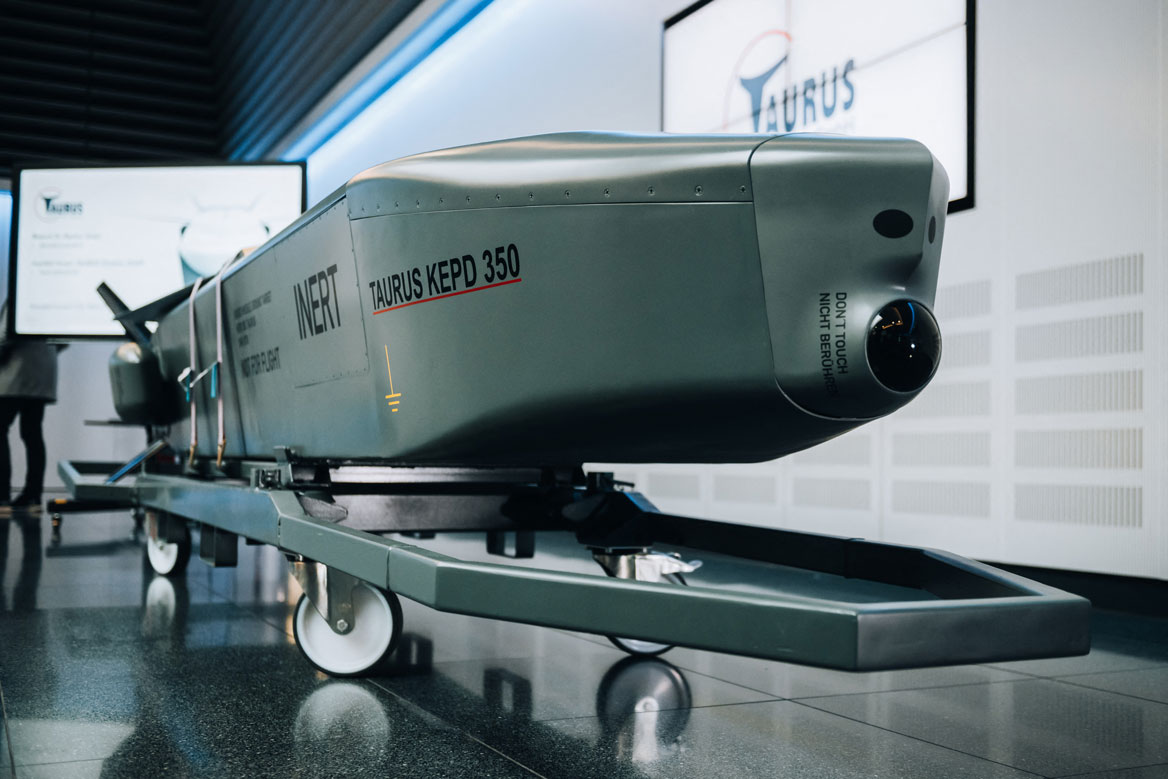Izvestia reported that on May 15, German Chancellor Friedrich Merz announced that Berlin currently has no plans to transfer the Taurus cruise missile to Ukraine, amid renewed skepticism surrounding the possibility of implementing the plan.
According to Mr. Merz, the aid of Taurus missiles is not on the German government's agenda. However, he revealed that this issue is still being discussed with both chairmen of parliamentary groups in the ruling coalition.
Mr. Merz emphasized that Germany needs to have a clear plan and a significant preparation before considering transferring the missile with a range of about 500 km, capable of hitting deep into Russian territory.
However, Ukraine will still receive other aid packages from Germany.
According to RT, in April, German Defense Minister Boris Pistorius said that Berlin had planned to transfer 4 IRIS-T SLM air defense systems and 30 accompanying missiles. In addition, Germany has also handed over 60 anti-personnel vehicles, 50,000 artillery shells and 1 IRIS-T intercept rocket.
Not stopping there, Germany has recently been licensed by the US to transfer 100 patriot missiles and 125 long-range artillery missiles to Ukraine.
According to the International Traffic in Arms Regulations (ITAR) of the US, the patriot air defense system and US-made weapons owned by European allies must be approved by the Washington government before being transferred to a third party.

Meanwhile, according to DPA International, on April 1, Ukrainian President Volodymyr Zelensky expressed hope that Germany would approve the transfer of Taurus cruise missiles after Mr. Merz took office on May 6.
In an interview at the time, Zelensky said he would actively work with Merz on the issue, but declined to provide further details. When asked if he was optimistic, the Ukrainian president replied: "Yes, of course, even a little more than I hope."
In February, Mr. Merz left open the possibility that his government would provide Taurus missiles to Ukraine, and called on European allies to coordinate in providing additional defense systems.
However, Mr. Merz was still cautious at the time in providing weapons to Ukraine, because he did not want Germany to sink too deep into the conflict, or as he said: "Germany must not become a combat side".
For its part, Russia continues to condemn the Western supply of weapons to Ukraine, saying that it only prolongs the conflict without changing the final outcome.
On May 10, Kremlin spokesman Dmitry Peskov said Russia would ask the US and Europe to end arms assistance to Ukraine in any potential ceasefire.











